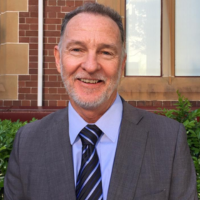New research published in a leading public health journal today shows that Australian teenagers who have vaped are much more likely to then try smoking, with Australia’s youngest adolescents the most at risk.
Health experts say it’s a sobering reminder of the need for state, territory and federal governments to work together to fully implement and enforce Australian’s new vaping reforms and protect young people.
The new study used Generation Vape survey data from over 5,100 teenagers in a retrospective cohort analysis that was published today in the Australian and New Zealand Journal of Public Health.

Lead Author Sam Egger from the Daffodil Centre says the study is the first of its kind in Australia, using data collected in 2023, prior to recent vaping reforms coming into effect.
“It’s the first Australian study to look at the relationship between teenage vape use and smoking over time, and across different ages.
“Even after accounting for other factors that could influence the likelihood that a young person would try vapes or tobacco, we found that teenagers aged 12-17 who had vaped are five times more likely to start smoking in the future than those who had not.
“The link was strongest for adolescents at the younger end of the 12 to 17 age range. The younger a person started using vapes, the higher their increased risk that they would subsequently try smoking. We found that 12-year-olds who had vaped were 29 times more likely to go on to try smoking than 12-year-olds who had not vaped.”

Associate Professor Becky Freeman, study supervisor from the University of Sydney, says that the study reinforces why the national vaping reforms introduced this year were urgently needed and now need to be strongly enforced.
“When it comes to teenage smoking, up until recently Australia was an international success story. Our Australian teenage ever-smoking rates dropped from 58% in 1996, to 14% in 2023. But recent data has suggested a possible increase in teenage smoking over the same time period that vape use has exploded.
“Public health experts have warned that teenage vaping uptake has the potential to undo the positive progress Australia has made in reducing smoking. This latest study shows how real that threat is.
“Young people don’t want to smoke. They’ve grown up seeing graphic health warnings on expensive cigarette packs and think smoking is unattractive and something from their parent’s generation. They view vaping as an entirely different behaviour to smoking and don’t know that they are more likely to take up smoking if they vape.”

Adjunct Professor Terry Slevin, CEO, Public Health Association of Australia, says that while public health experts have enthusiastically welcomed the Federal Government’s vaping reforms, positive change won’t happen overnight.
“We strongly and enthusiastically welcomed the Federal Government’s vaping reforms that passed Parliament in June this year, but the job is not done yet.
“We need to make sure that state and territory governments are harmonising their local legislation and enforcement with the Federal reforms. All levels of government will need to work together to protect young people.”

Ms Alecia Brooks, research co-author and Chair of Cancer Council’s Tobacco Issues Committee says that support is available for teenagers who vape or smoke and have become addicted to nicotine.
“Most concerningly, the research shows that it is our youngest teenage vapers, kids as young as 12 who have vaped are at the highest increased risk of trying smoking because of the easy access to vapes in Australia in recent years before action was taken.
“We anticipate that now restrictions on vaping are coming into place, any population-level impacts that e-cigarettes are having on smoking rates will become minimal, but we aren’t entirely out of the vape haze yet.
“We know that communities, including teenagers, schools, teachers and parents are very concerned about vaping and will find these findings worrying. We urge anyone seeking support to speak with their doctor or call quit on 13 7848. Smoking and addiction isn’t inevitable and support to quit is available.”




